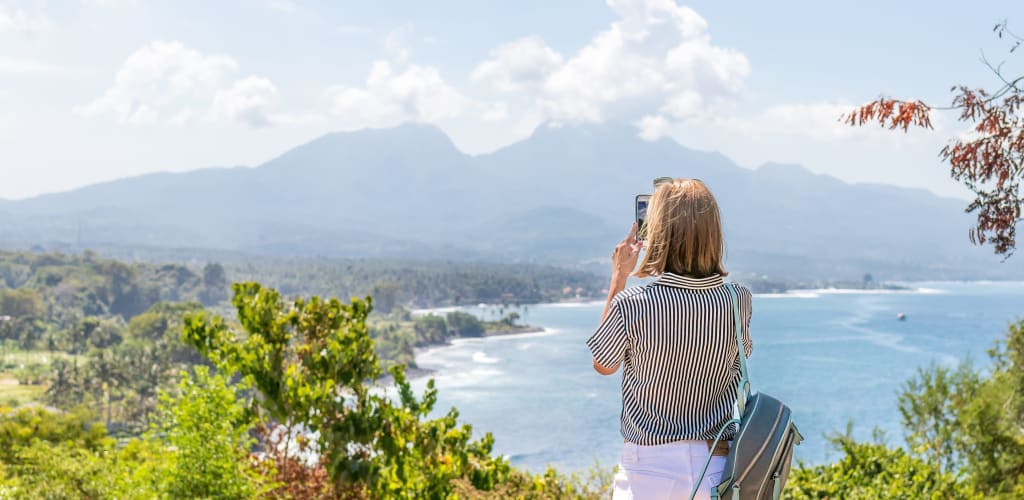Traveling can be one of the most exciting experiences in life. Whether you’re exploring new cities, relaxing on a beach, or visiting family in another country, managing your finances is crucial to making sure your trip goes smoothly. But how do you manage your finances while traveling? This article will guide you through some easy and practical ways to keep your money in check during your adventures.
Setting a Budget Before You Go
The first step in managing your finances while traveling is setting a budget before you go. This means deciding how much money you can spend each day and how much you’ll need for the entire trip. Start by figuring out your total expenses, including flights, accommodations, food, and activities. Make a list of all these costs to get a clear idea of how much money you need.
Creating a Daily Spending Limit
Once you have your total budget, break it down into a daily spending limit. For example, if you plan to travel for ten days and have $1,000 for the trip, your daily limit would be $100. This helps you keep track of your spending and ensures you don’t run out of money before your trip is over.
Using Budgeting Apps
There are many budgeting apps available that can help you manage your finances while traveling. Apps like Mint or YNAB (You Need a Budget) allow you to set spending limits and track your expenses in real time. By entering your expenses into these apps, you can easily see how much money you have left and adjust your spending if necessary.
Choosing the Right Payment Methods
Choosing the right payment methods is another important part of managing your finances while traveling. You’ll need to decide whether to use cash, credit cards, or debit cards, and how to handle currency exchange.
Carrying Some Cash
It’s a good idea to carry some cash for small purchases and places that don’t accept cards. Before you travel, exchange some of your home currency for the local currency of the country you’re visiting. This can help you avoid high exchange rates at airports or tourist areas.
Using Credit and Debit Cards Wisely
Credit and debit cards are convenient for larger purchases and can offer better exchange rates than cash. However, be aware of foreign transaction fees that some banks charge. Check with your bank before you travel to find out about any fees and let them know your travel plans to avoid having your card blocked for suspicious activity.
Keeping Your Cards Safe
While traveling, keep your credit and debit cards in a safe place. Consider using a money belt or a secure travel wallet. It’s also a good idea to make a copy of your cards and keep the information separate from the cards themselves. This way, if your cards are lost or stolen, you can quickly report them to your bank.
Tracking Your Expenses
Tracking your expenses helps you stay within your budget. You can do this manually by keeping receipts and writing down each purchase, or you can use an app to record your spending.
Keeping Receipts
Whenever you make a purchase, keep the receipt and write down the amount spent. This simple habit will help you track your spending and stay on top of your budget.
Using Expense Tracking Apps
Expense tracking apps are a great tool for managing your finances while traveling. Many apps allow you to take pictures of your receipts and categorize your expenses. This makes it easy to see where your money is going and make adjustments if needed.
Planning for Unexpected Costs
Unexpected costs can happen, so it’s important to plan for them. Setting aside a portion of your budget for emergencies will give you peace of mind and help you manage your finances if something unexpected comes up.
Setting Up an Emergency Fund
Before you travel, set aside some money for emergencies. This could be a small amount of cash or a separate savings account. Having an emergency fund will help you handle unexpected expenses without derailing your travel plans.
Knowing How to Access Emergency Funds
Make sure you know how to access your emergency funds while traveling. This could mean having a backup credit card or knowing where you can quickly transfer money if needed. Being prepared for emergencies will help you manage your finances effectively and reduce stress during your trip.
Saving Money While Traveling
Saving money while traveling doesn’t mean you have to miss out on fun activities. There are many ways to cut costs and make the most of your trip without breaking the bank.
Finding Deals and Discounts
Look for deals and discounts on attractions, accommodations, and activities. Websites like Groupon or travel deal sites can offer significant savings on various experiences. Additionally, check if your destination has any local discount cards or special offers for tourists.
Eating Like a Local
Eating at local restaurants or street food stalls is often cheaper than dining at tourist spots. Plus, it gives you a chance to try authentic local cuisine. Ask locals for recommendations or explore less touristy areas to find budget-friendly dining options.
Using Public Transportation
Instead of taking taxis or rideshares, use public transportation whenever possible. It’s usually much cheaper and gives you a chance to see more of the city like a local. Many cities also offer travel passes or discount cards for tourists.
Avoiding Common Financial Pitfalls
There are some common financial pitfalls that travelers often encounter. Being aware of these and knowing how to avoid them can help you manage your finances better while on the road.
Over-Spending on Souvenirs
It’s easy to get carried away with buying souvenirs, but these small purchases can quickly add up. Set a limit for how much you’ll spend on souvenirs and stick to it. Remember, the memories and experiences are often more valuable than physical items.
Ignoring Currency Exchange Rates
Paying attention to currency exchange rates can save you money. Avoid exchanging money at airports or tourist areas, as they often offer poor rates. Instead, use local banks or exchange services to get better rates.
Forgetting to Track Small Purchases
Small purchases, like snacks or coffee, can add up if you’re not tracking them. Be sure to keep track of these expenses and include them in your daily budget. This will help you get a clearer picture of your spending and avoid surprises.
Conclusion
Managing your finances while traveling doesn’t have to be complicated. By setting a budget, choosing the right payment methods, tracking your expenses, and planning for unexpected costs, you can keep your finances in order and enjoy your trip without stress. Remember to save money by finding deals, eating like a local, and using public transportation. Avoid common financial pitfalls and stay aware of your spending to make the most of your travel experience.
With these tips, you’ll be well-prepared to manage your finances while traveling and focus on making lasting memories on your journey.





